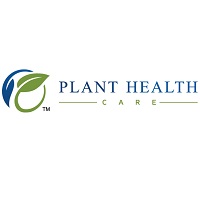Plant Health Care (LON:PHC), a leading provider of novel patent-protected biological products to global agriculture markets, today provided the following update on trading in 2019.
Chris Richards, CEO of Plant Health Care noted: “In 2019, as in 2018, last minute customer and logistical issues will result in revenue falling short of expectation. However, the delay in sales is principally a matter of phasing. Underlying growth prospects are as strong as ever. The Board intends to address sales phasing during 2020, which will make it easier for investors to track revenue growth. Costs are under tight control and we recently received a capital injection, so are well positioned to capitalize on the shift of revenue into the next financial year.”
Key points:
· Due to external factors, year end revenue is expected to be approximately $6.5m, which is short of expectation. This is primarily due to:
o Supply of H2Copla to satisfy demand of $1.1M in sugarcane has been delayed until import licences are granted by the Brazilian authorities.
o Forecast sales of around $1M of Harpin 𝜶β for corn seed in USA have been postponed by our channel partner as they respond to working capital pressures after an exceptionally difficult year.
· Underlying market demand remains strong, and other parts of the Company’s operations are unaffected.
· Progress towards the first launches of products from PREtec (Plant Response Elicitor Technology) continues to be very promising, targeting markets worth more than $5 billion.
· Following the recent fund-raise, the Company is well capitalised to manage the shift of revenue into the next financial year.
Prospects:
· Prospects for Brazilian sugarcane remain strong, and we expect import licences to be granted early in the New Year. Bureaucratic difficulties are not uncommon for new companies operating in Brazil.
· After the successful 2019 launch of Harpin 𝜶β into US corn, and enthusiasm from distributor and growers, treated areas in 2020 are still expected to be a multiple of those in 2019; we also expect to see first sales into new crops.
· As a result of tight control of our operational costs, cash burn in 2019 will be significantly lower than in 2018.








































